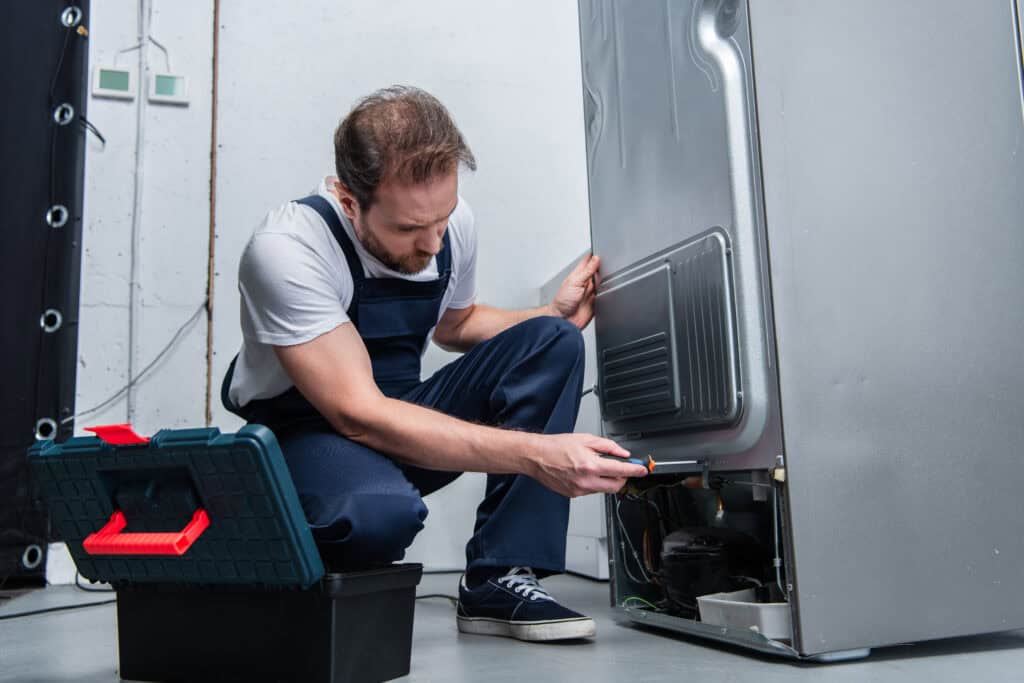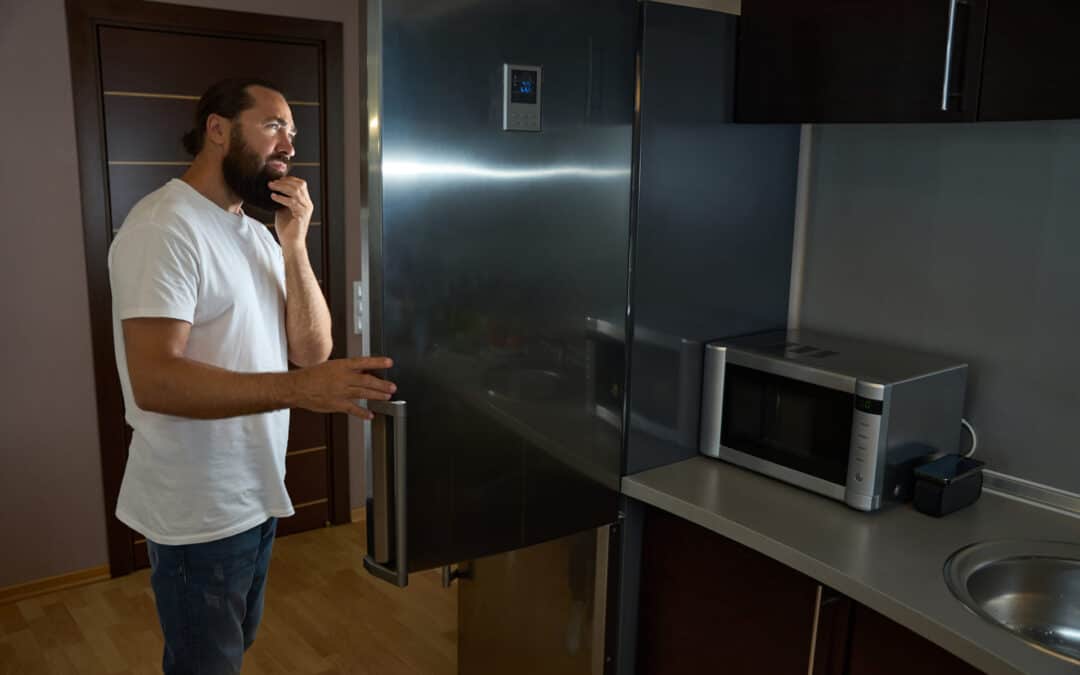A refrigerator remains one of the most indispensable appliances in any household. It operates continuously, preserving food quality and preventing unnecessary waste. When it begins displaying unusual behavior, neglecting those warning signs can result in expensive fixes or complete replacement. Identifying these critical signals early by calling an appliance repair service ensures optimal performance and a dependable cooling system.
Key Symptoms Your Refrigerator Might Require Fixing
A fridge may appear to function normally, but minor shifts in efficiency often suggest underlying problems. Renew Appliance Repair service in Slidell shares a recent story. A homeowner noticed that their milk turned sour days before the expiration date. Initially, it seemed like a coincidence, yet other perishables started degrading rapidly. Eventually, they contacted us for appliance repair and discovered their unit was not maintaining a stable temperature due to a malfunctioning evaporator fan. Recognizing these subtle changes can prevent very costly repairs and food waste.
- Groceries spoiling much quicker than expected
- Inconsistent cooling patterns throughout the fridge
- Noticeable increases in energy consumption
1. Fridge Not Cooling Effectively
A refrigerator struggling to maintain its temperature compromises food safety. The ideal temperature for a refrigerator is 37-40 degrees Fahrenheit, while a freezer should stay at 0 degrees. If food begins warming or ice melts faster than usual, internal mechanisms could be under strain.
- A defective thermostat can lead to temperature fluctuations
- Clogged air vents may obstruct proper circulation
- A worn-out compressor might struggle to sustain cooling levels
2. Unusual Noises Coming from the Fridge
A refrigerator is rarely silent, yet sudden loud or irregular sounds may indicate internal malfunctions. Clicking noises may stem from a failing start relay, while buzzing might suggest that the compressor is straining. Gurgling or hissing noises could be associated with refrigerant issues.
- Buzzing or droning could signal electrical malfunctions
- Frequent clicking may suggest a deteriorating compressor
- Rattling sounds might indicate loose parts or malfunctioning fans
3. Food Perishing Prematurely
Perishable goods deteriorating before their expiration dates typically point to erratic cooling within the refrigerator. Items like dairy and fresh produce require steady refrigeration to remain safe for consumption. If they begin to spoil rapidly, cooling issues might be the culprit.
- Unstable temperatures encourage bacterial growth and spoilage
- Worn door seals might allow warm air to infiltrate
- Low refrigerant levels can impair cooling efficiency
4. Water Leaking Beneath the Refrigerator
Unexpected puddles forming under the fridge should never be ignored. Leaks may originate from a clogged defrost drain, a compromised water line, or an overflowing drip pan. Failing to address these leaks can lead to mold accumulation and damage to flooring.
- A clogged defrost drain often results in water overflow
- Cracked or disconnected water lines may cause continuous leaks
- A misaligned drip pan may not capture excess moisture properly

5. Ice Maker Failing to Produce Ice Correctly
An ice maker that stops functioning or dispenses irregularly shaped cubes may indicate water flow complications. Strange-tasting or murky ice may point to mineral deposits clogging the system. Routine maintenance prevents blockages and ensures fresh-tasting ice.
- Frozen water lines can impede ice production
- A defective water inlet valve disrupts supply flow
- Mineral accumulation in filters can degrade ice quality
6. Excessive Frost Accumulation in Freezer
A small amount of frost is normal, but excessive buildup inside the freezer signals an issue. A broken defrost system may cause ice layers to form, obstructing airflow and reducing cooling efficiency. Poor door seals also contribute to moisture infiltration and frost accumulation.
- A malfunctioning defrost heater leads to persistent frost
- Worn-out door seals allow warm air infiltration
- Blocked airflow causes temperature inconsistencies
7. Refrigerator Running Constantly Without Stopping
A refrigerator that rarely cycles off may have issues with its thermostat, condenser coils, or door gaskets. When an appliance overworks, energy costs rise significantly. Cleaning coils and inspecting door seals can mitigate this concern.
- Dusty condenser coils force the fridge to overcompensate
- A broken thermostat may keep the compressor engaged
- Worn-out door seals can let cold air escape, requiring more effort to maintain temperature
8. Persistent Foul Odors Inside the Refrigerator
Lingering odors aren’t always due to expired food. Persistent bad smells may stem from mold growth, a blocked drain, or even refrigerant leaks. Regular deep cleaning and checking for drainage problems help eliminate these unpleasant odors.
- Damp conditions allow bacteria and mold to thrive
- Clogged drains create stagnant water and unpleasant smells
- Chemical-like odors may indicate a refrigerant leak
9. Fridge Door Failing to Close Tightly
A refrigerator door that doesn’t seal properly allows warm air inside, forcing the appliance to work harder. This can accelerate food spoilage and increase energy costs. Performing a simple test with a dollar bill can confirm if the seal needs replacement.
- Worn-out gaskets prevent an airtight seal
- Misaligned hinges can cause improper closure
- Loose handles may contribute to faulty sealing

Essential Takeaways for Refrigerator Upkeep and Repair
Renew Appliance Repair stresses that a struggling refrigerator often shows signs long before it completely stops functioning. Monitoring temperature consistency, unusual sounds, and leaks can prevent major expenses. Routine maintenance improves efficiency and extends the unit’s lifespan.
- Fluctuating temperatures often indicate cooling system problems
- Unusual noises may suggest mechanical failures
- Leaks and excessive frost require immediate attention
Frequently Asked Questions About Refrigerator Repair
What causes my refrigerator to make a loud buzzing noise?
Buzzing noises typically stem from a struggling compressor or malfunctioning fan. Cleaning the condenser coils may sometimes reduce the sound.
How can I test if my refrigerator door gasket is faulty?
A simple way to check is by placing a dollar bill between the door and the gasket, then closing the door. If the bill slides out easily, the seal likely needs replacement.
Why is my fridge not cooling but the freezer still works?
This often results from blocked airflow vents or a failing evaporator fan. Inspecting for ice buildup around the vents may help diagnose the problem.
Is repairing an old refrigerator worth it?
If the appliance is more than 10-15 years old and repairs cost over half the price of a new unit, replacing it may be the smarter decision.
Why does my fridge continuously run without stopping?
A constantly running fridge may indicate dirty condenser coils, a malfunctioning thermostat, or door seals allowing warm air inside.







